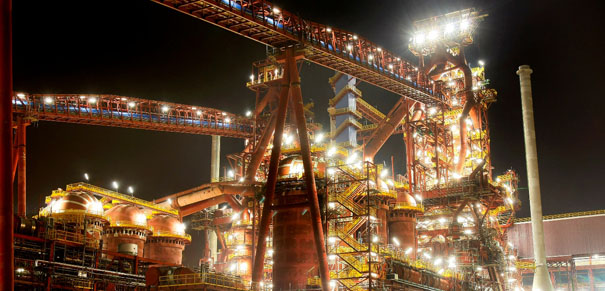Sure, we could have done all of these things, we could even do them now:
Britain, for example, could have had a brilliant civil nuclear industry, a vibrant aerospace sector, the fastest growing windfarm industry, clusters of hi-tech business all over the country – and a hi-tech steel industry. Instead it is no better than a mendicant subcontractor. It does not have a share stake in Airbus, while France and China are building our nuclear power stations. Our green industries, once the fastest growing in Europe, are shutting. Only banks and hedge funds are protected and nurtured in a vigorous, uncompromising industrial policy, but they don’t buy much steel. They are the “we” behind which even ultra-libertarian Sajid Javid will throw the awesome weight of the state. Scunthorpe, Redcar, Teesside and the West Midlands are not; they can go hang.
And for once the Observer's subs have got the heart of the matter correct:
There is no need for the laws of supply and demand to destroy our industries
The point is though, that while we could have done all of these things we didn't want to do all of these things nor do we want all of those things to have been done. For we actually want what is produced to be so as a result of the interplay of supply and demand.
Do not forget Adam Smith: the sole point and purpose of all production is consumption. Supply is, in a very general sense indeed, determined by the resources available and the technologies we know about to transform them. Demand is, well, that's us. And so we want what is produced, that supply within those twin constraints of resources and technology, to be determined by the accumulated desires of us all, which is that demand.
Hutton talks about both steel and football. And if it costs more to produce Accrington Stanley than people are willing to support their demand for Accrington Stanley with then it's not just that the club should close it's that we desire that the club should close, as it did. Similarly with steel: if those resources combined with that technology are a net loser to our society then we'd prefer that those resources go off and combine with some other technology to produce something that is a net addition of value to our society.
Hutton is entirely right that we can ignore both supply and demand and construct the economy according to other metrics. Perhaps the personal desires of the head of an Oxbridge college for example. But the point is that we don't want to do that. We actually desire the economy to be run on the basis of supply and demand precisely because demand is what we all want. Not, say, what the head of an Oxbridge college wants.














